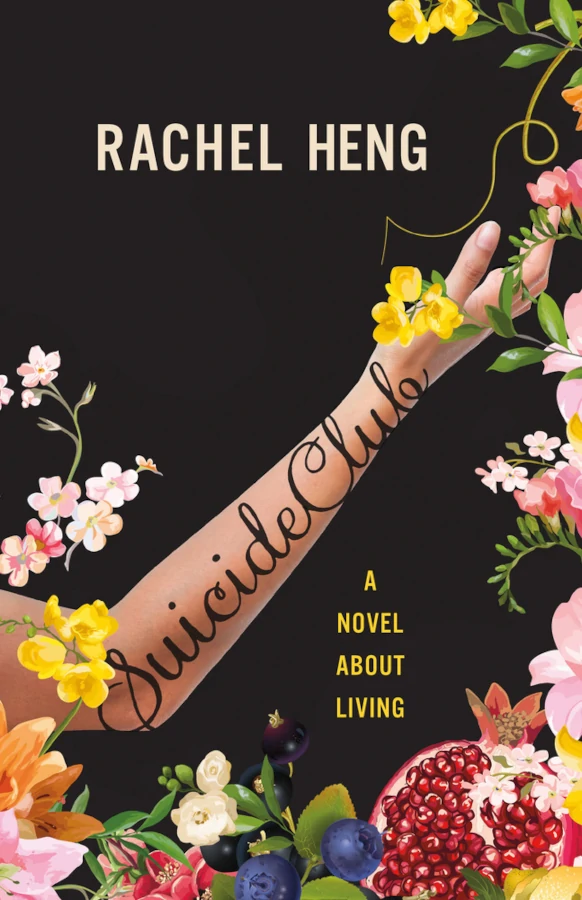
Rachel Heng’s Suicide Club
Words By Maribel Leddy
There’s no question that recent health trends, and indeed health trends from around the world since the beginning of time, have often focused on prolonging human life to its greatest extent. But, Suicide Club interjects, at what cost do we pursue this great extreme? And who wants to live forever, anyway? It’s a question that’s been contemplated by many, including 70s rock band Queen and Natalie Babbitt in Tuck Everlasting. And now, in her debut novel, Rachel Heng asks it just as well and offers a timely, futuristic setting and a kickass female protagonist to help provide an answer. By critiquing modern obsessions with dieting, exercising, and making “healthy” lifestyle choices that follow the most current scientific research, Heng explores what it really means to be alive.
No, this novel doesn’t suggest that it’s good to live the way your average college student does—by scarfing down instant ramen at three in the morning while staring with bloodshot eyes into the painful depths of a computer screen as your fingers shake over the keyboard from a seventh espresso shot—but it does consider the consequences of the pursuit of bodily perfection that will lead to eternal life.
Suicide Club is set in a world where there are two kinds of people: lifers and non-lifers. Lea Kirino happens to be one of the lifers: a human given the chance at birth to live forever—as long as she does everything right. And Lea has striven for this “right” all her life, subjecting herself to the dieting, juicing, checkups, and low-impact exercise required of her to reach immortal status. She hopes to fulfill her late mother’s dreams for her, a goal which is complicated by the weight of the tragic loss of her older brother early on in life. At over 100-years-old—an age reached by almost all lifers with little to no signs of aging past fifty—she’s nearly there.
But Suicide Club reminds us that this pursuit of eternal life, and the idea that human perfection can not only be achieved but sold as a product on the market, sucks the meaning out of life and makes some long for death. Lea must face this fact head on when her carefully hidden past collides with her present in the form of her long-lost father. “Anti-sanct” Kaito eats all the greasy hamburgers he wants and is involved with an organization known as the Suicide Club—a group of powerful individuals who are willing to commit suicide on camera as a form of protest. When Lea makes a dire mistake on her way to work after seeing Kaito on the street, she’s put under observation by the government—a move that threatens to unravel all of her hard work.
Is a beating heart all one needs to be alive? Underneath authoritative prose that builds an immense and fascinating world, Suicide Club contemplates these questions while emphasizing the relationships that make life worth living: the bonds between fathers and daughters, mothers and children, and female friends. It’s relieving and refreshing to read a novel that deemphasizes romantic relationships and celebrates platonic ones.
Relevant, powerful, and realistic, Suicide Club is a breath of fresh air with flawed, sympathetic characters and, at its center, important questions about what it means to be alive. “Forever is our today / Who lives forever anyway?” are the words Queen uses to conclude their song, “Who Wants to Live Forever?” The final moments of Suicide Club concur with and complicate this message through the actions of two women who have lived beyond their time.